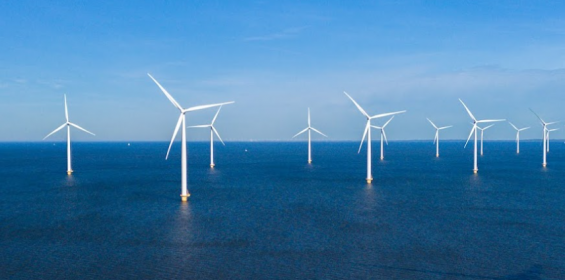Overcoming supply chain issues key to solving the clean energy conundrum
Published: 19 March, 2025
The success of the government’s plan to accelerate the UK energy transition depends on its ability to overcome wider supply chain challenges, according to energy solutions and temperature control specialist Aggreko.
This follows the introduction of the Planning and Infrastructure Bill, which outlines a set of measures targeted at catalysing the Clean Power 2030 Action Plan.
Among the measures is an extension to the generator commissioning period (GCC) from 18 to 27 months, aimed at reducing the number of offshore wind farms requiring exemptions when applying for licences to connect to onshore cables and substations.
While measures to address the backlog of new energy projects awaiting grid connections could accelerate progress, Aggreko is highlighting that further obstacles to solving the ‘clean energy conundrum’ need to be considered.
According to the business’s latest research, which explores the key challenges associated with the build process of offshore wind projects, the lack of robust supply chains is significantly restricting growth.
Race to Renewables reveals that 39% of 855 offshore wind professionals across Europe* surveyed believed the lack of temporary power solutions was the biggest barrier to growth. In addition, the integration of greener technologies was seen as a limiting factor.
After over 40% of UK respondents claimed that grid connectivity had worsened in the past year, the government’s commitment to a ‘first ready, first connected’ system, which prioritises wind and solar power projects for grid connections, promises to reduce the growing bottleneck.
Yet, the research also underlines major supply chain issues, including transport and logistics (42%) and equipment turnaround time (40%), which risk undermining the efforts made to access power. This can cause problems throughout the whole development, but it is especially problematic for the construction phase, whereby power is needed for cable laying and supporting heavy lifting vessels.
Aggreko’s report also suggests that the increasing demand for greener technologies capable of driving down emissions during the development phase is being restricted by multiple barriers. Over half of UK respondents deemed associated costs as a major obstacle and 40% admitted that a lack of technical knowledge and experience was impeding uptake, indicating a serious skills gap surrounding new technologies.
Alan Dunne, UK and Ireland Managing Director at Aggreko, said: “The recent wave of government support for the clean energy transition will undoubtedly be welcomed by the industry. It is, however, crucial that we look to address numerous supply chain challenges to successfully increase the share of wind energy in the overall mix.
“Our latest report demonstrates the value of strategic supply chain partnerships in providing suitable flexible energy solutions and the expertise to deliver it correctly. Pivotal to this is the ability to adapt to changing industry requirements and priorities, including the use of greener technologies to reduce emissions during crucial construction processes.”
To help overcome the key challenges outlined in its latest report, Aggreko’s Energising Change framework has been designed to support a commercially viable energy transition for companies across sectors. This includes advancing turnkey solutions that bridge the gap between power provision, fuel management and transportation and developing renewable infrastructure for the future.
https://www.linkedin.com/company/aggreko/







